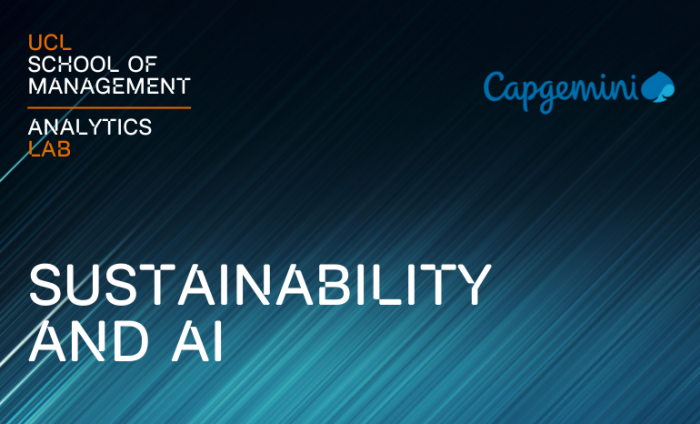
A new report from UCL students and consultancy firm Capgemini argues that while the use of AI can enable and accelerate the implementation of sustainability within organisations, a rigorous and comprehensive transformation is required to enable both AI and sustainability to work together hand in hand. Carried out at the UCL School of Management’s Analytics Lab, the report also explores the relationship between sustainability and AI, as well as the challenges of AI transformation and implementing AI as part of the sustainability journey.
Amid the rising calls for businesses to implement more sustainable processes and policies, there is widespread agreement that AI can not only enable, but also accelerate the implementation of sustainability. Not only can it support the fight against climate change, but it could also reduce worldwide greenhouse gas emissions by 4% before 2030. However, this news is not uniformly positive. The development and use of the machine learning models that are driving the growth of AI is energy-intensive and may inhibit the achievement of sustainability goals. The report addresses how these tensions can be reconciled.
When making adjustments that would allow the symbiotic relationship between sustainability and AI to occur, businesses should consider the implications on the overall business strategy, as well as supply chains, day-to-day processes and technology. The report highlights that sustainability and AI each need a wide range of changes at the scale of the enterprise as a whole, including to digital services, data and architecture.
Ultimately, the report finds that AI provides tools that can accelerate an organisation’s journey to sustainability. But both AI and sustainability, separately and together, introduce challenges that require a rigorous and comprehensive transformation approach.
Read the full report or find out more about the UCL School of Management Analytics Lab.